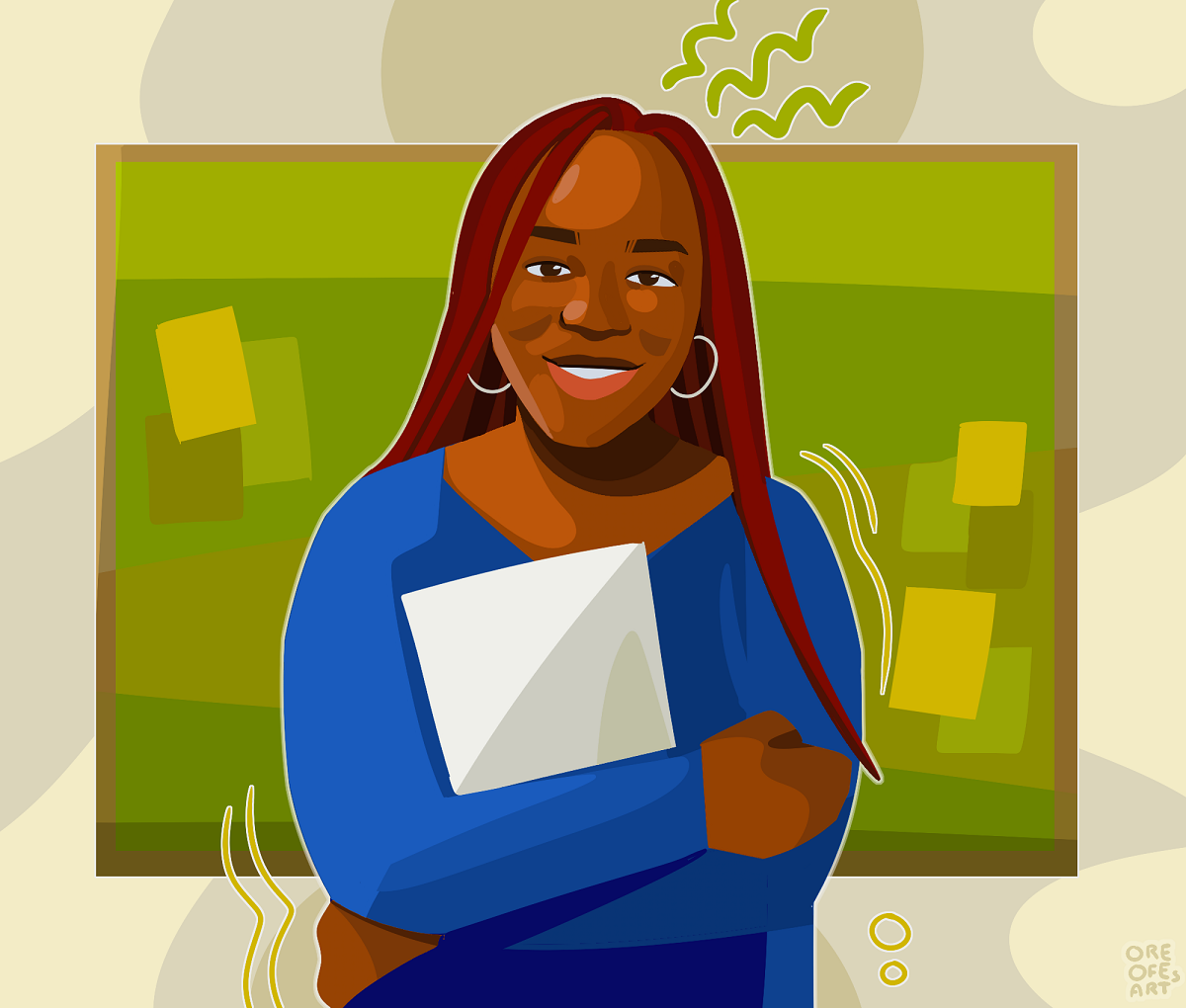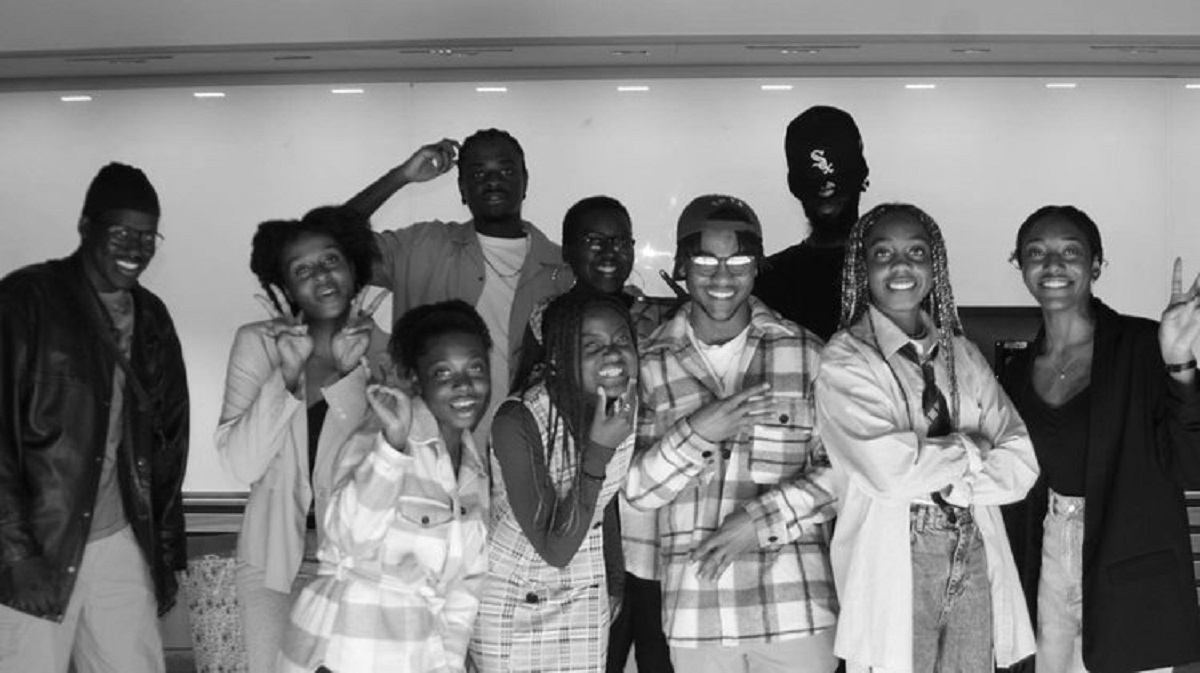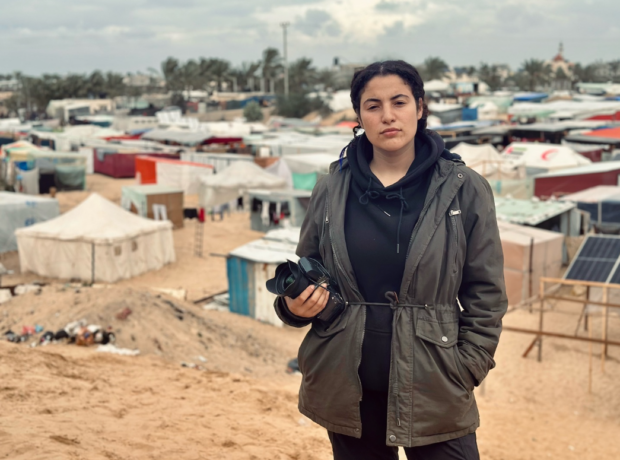From decolonising the curriculum to confronting everyday sexism, Lacuna’s stories have explored the issues that shaped the UK’s human rights landscape in 2023. We have invited teachers and students to write about their own experiences. Join us in revisiting our editor’s picks of impactful human rights writing from 2023.
“If you can see it, you can be it”: The impact of Black role models and Black creative spaces
“There was a big gap in Warwick, specifically for Black creative talent. As a collective, we define Blackness as boundless. It was important for us that Black talent was able to grow, in a free-flowing space, whilst being comfortable and authentic in our identity.”
How do Black role models and networks change the landscape for young people? University of Warwick graduate Xaymaca Awoyungbo speaks with author Sandra A Agard about the importance of Black role models and explores Britain’s young Black creative networks. Find the full story here.
My Grandad and Covid – with underlying health conditions in a care home, his life was no less valuable
This is my grandad’s story, but every person who has lost their life to Covid deserves to be remembered, not as a statistic, but for what they brought to the world. The memorial wall in London has restored some humanity to those statistics but not everyone has had the chance to see it for themselves.
Emma Tetsill outlines how the government failed care home residents like her grandad and suggests statistics distract from the real human stories of the pandemic. In light of the UK Covid-19 Public Inquiry and its assertion that ‘Every Story Matters’, Emma’s story serves as a reminder of the tragic human cost of the pandemic and government neglect. Find the full story here.

Photograph by Geoff Henson via Flickr.
How can teachers begin to decolonise the curriculum? There may be more opportunities than you think…
Suddenly, what could have been a dusty lesson in which pupils are ‘told’ about their history, was transformed into a reality they understood they themselves were implicated within.
Many teachers are trying to decolonise their curriculums and classrooms, but how does this work in practice? School teacher and writer Lola Okolosie finds opportunities to approach lessons in English, geography and science through a decolonial lens. Find the full story here.
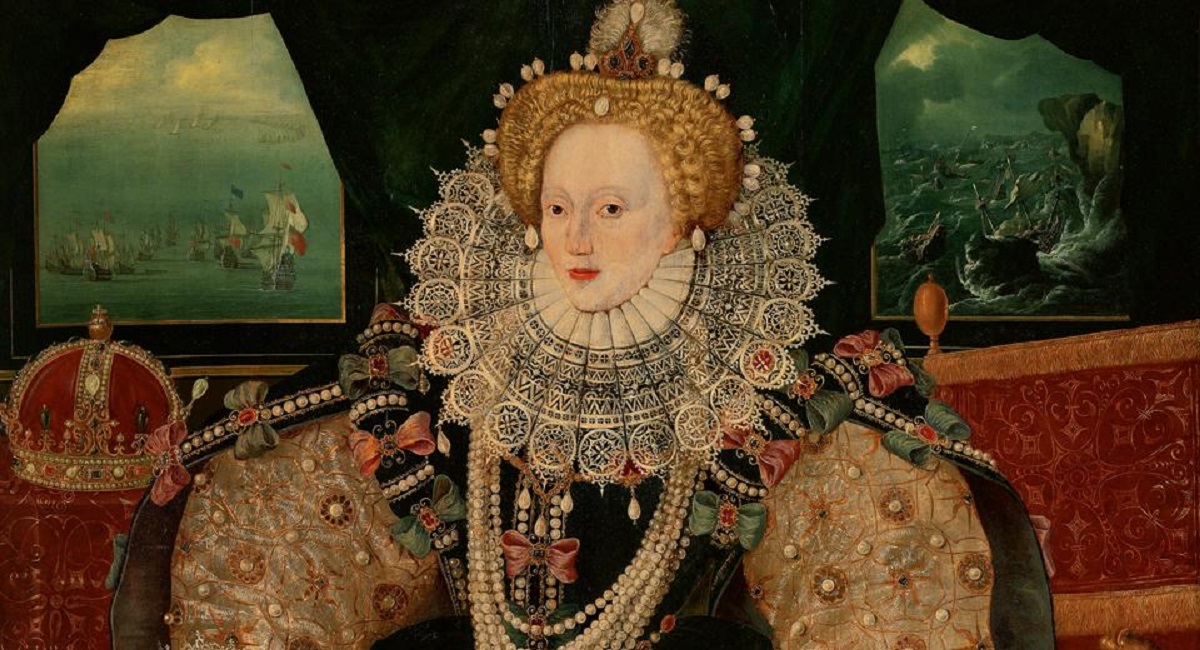
The 1588 Armada Portrait © National Maritime Museum, Greenwich, London
The Screen: Watching Afghanistan suffer from afar
They could never understand the pain of having to live life knowing you lost your country, knowing your country had lost its last remnants of humanity.
In this piece of creative fiction, law student Wajma Zazai, whose mother left Afghanistan, illustrates the plight of Afghan refugees then and now. This poetic story reminds us of the effects of conflict, not only on those living in it, but on those in the diaspora who are forced to watch what’s happening to their homeland through TV and phone screens. Find the full story here.

Everyday Sexism: The Microaggressions and Subtleties of Rape Culture
I wasn’t a person with thoughts and feelings, I was just body parts on display. I wasn’t someone with a destination and a purpose, I was just free momentary entertainment. All because of a top.
Our writer sharply examines a series of misogynistic microaggressions. Speaking directly to each man, she reflects on three encounters that illustrate how everyday sexism – such as rape jokes or “banter” – culminate to plague women. Find the full story here.
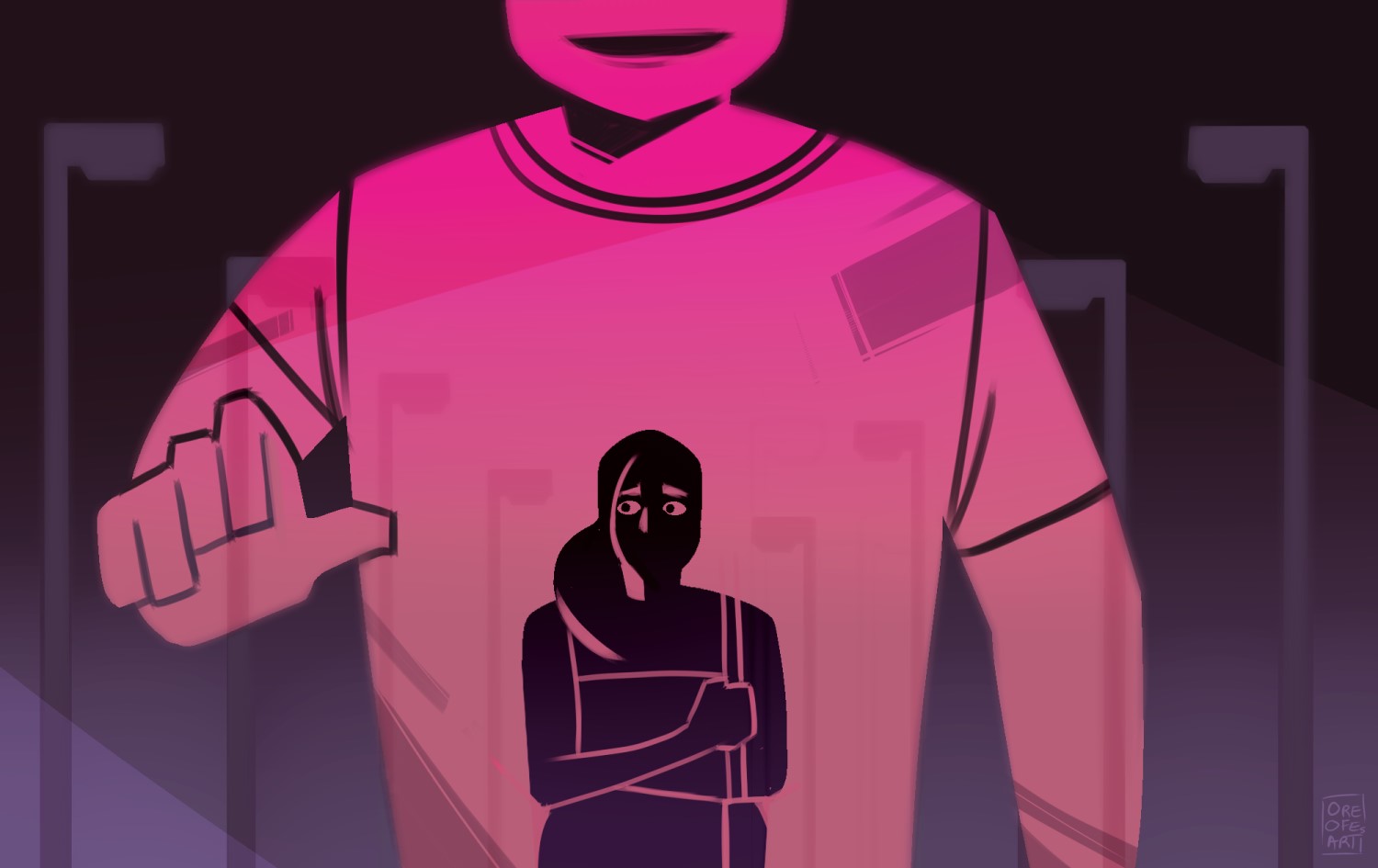
Art by Oreofe Morakinyo.
Meet the young British Nigerians who are taking Yoruba language lessons
Stepping into the classroom I see familiar faces among a sea of enthusiastic students. I sit beside my friends, asking them questions about their experience with the language. The room is so full that people are bringing in extra chairs, sitting on tables and standing on the outskirts.
In the diaspora, students with Nigerian heritage are retracing their roots with Yoruba language classes. The lessons aim to inspire confidence about a culture and heritage that might otherwise feel beyond reach. Xaymaca Awoyungbo explores how Yoruba lessons, poetry and music are breaking down barriers. Find the full story here.

Art by Oreofe Morakinyo.
Lacuna Magazine thanks all our writers and readers for their continued support.
Main image by Oreofe Morakinyo.
Read more:
